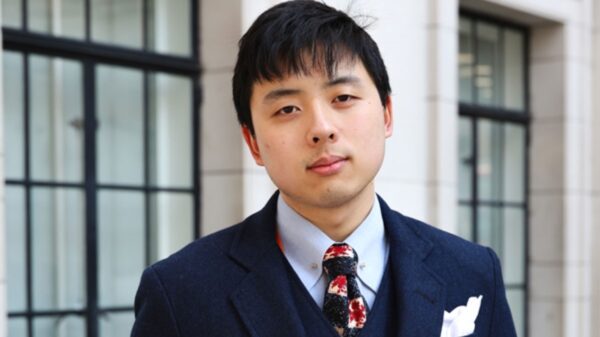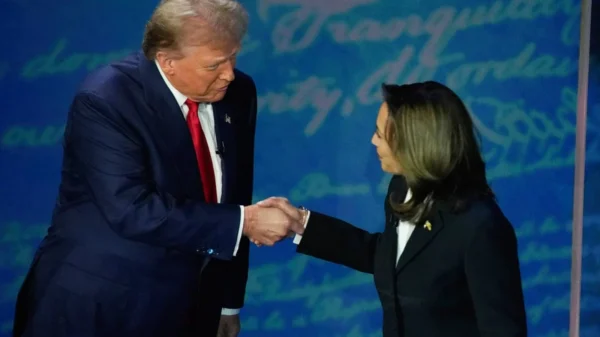Roar writer Chloe Ferreux on the rise of Eric Zemmour, a right-wing pundit who could shake up France’s upcoming presidential election
Donald Trump’s talents as a polemicist are undeniable, but Eric Zemmour, a candidate for French President in the upcoming election, has nothing to envy. Like the former American president, the polemicist has made a name for himself on television. And when the spotlight is shining on him, he is delighted to wade in to some of the most controversial issues, such as women’s rights, immigration and Islam in Europe. The reign of President Trump may be over, but a new dawn for right-wing populism may be coming in France. Zemmour may well end up challenging Emmanuel Macron in April’s Presidential Election.
The so-called “great replacementâ€
As Donald Trump, Eric Zemmour has a sectarian worldview. Already convicted twice for inciting hatred, he never bothers to disguise inflammatory rhetoric against immigrants and especially the Muslim community. He strongly supports the ethno-nationalist theory of the “great replacement” which falsely postulates that white Europeans are being deliberately replaced, demographically and culturally, by immigrants from North Africa and the Middle East. And among his best-known and most unique proposals is banning Muslim-sounding names. While these ideas may elicit laughter and mockery, their purveyors have a chance at victory in the upcoming Presidential and Parliamentary elections. Indeed, with five months to go before the elections, polls show that 30% of French voters would vote for a far-right candidate in order to put an end to immigration. And just like the former American president, these ideas are likely to appeal to a voter base ranging from the working class to the Parisian bourgeoisie.
Trump’s Twin Across the Pond
What would a political twin of Donald Trump be if he is not a climate skeptic? Eric Zemmour does not make ecology a campaign priority. On the contrary, he loves the automobile world and has no intention of regulating it. His rhetoric is concerned with questioning the veracity of climate change. He believes that there is still debate on the issue even as 99% of climate science researchers say that global warming is real and caused by human activity. In 2019, he called climate activism “a new religion”. Although his position on the subject is less virulent than those of Donald Trump, it does not distance itself from it.
The position on feminism is not detached from Trumpism either. He has argued on many occasions, whether on stage or in his books, that there is a natural superiority of males. France Inter, the first radio channel in France, has peeled back last November more than twenty-five years of misogynistic statements. The condition of women is not only a campaign issue, but also a real obsession for the candidate. And in addition to his opinion on the issue, the multiplication of testimonies of women accusing him of sexual assault is far from slowing down his popularity with the French people.
He admires Donald Trump’s America, the conservative one, where the rights of women, minorities and LGBTQ people are ignored.
“Make France Great Again”
Zemmour loves historical revisionism. He has attempted to valorize the Vichy Government, the French vassal state of Nazi Germany, which cooperated in the persecution and genocide of the Jewish people. According to him, all of French history is great; he says France did not collaborate with the Nazi regime and on the contrary saved the Jews.
In announcing his candidacy, he placed his voice on images of an idealistic past, contrasting it with a present of unparalleled violence on the verge of civil apocalypse. The name of his party, “Reconquêteâ€, is a direct reference to the Spanish military Reconquista where the Christian monarchy drove out the Muslim dynasties. The two political figures thus act on a powerful emotion to convince, a particular element that is not found in all populists. Where America needed to be great again, France needed to be reconquered.
The media’s latest obsessionÂ
Eric Zemmour does not come out of nowhere. Just like Donald Trump, he is a media phenomenon. He started as a journalist at Le Figaro, a popular centre-right newspaper, and continued his career at CNews, the channel that wishes to become the French Fox News. Thus, in a short time, he became the controversial, establishment outsider who was ready to return his country to its vaguely-defined, historically-inaccurate former glory. Just like the former American president, the media are giving the candidate unparalleled attention. In September, eight months before the presidential election, the media quoted the polemicist 4,167 times in the national press according to Acrimed, a French association of media criticism. Zemmour’s program on immigration, security and Islam is constantly in the news, forcing the other candidates to express themselves regularly on it.
President Zemmour?Â
It is difficult to imagine that such a character could become so popular in a country that was the epicenter of the Enlightenment in the 17th century. However, unlike in the United States, a candidacy for the French election requires the approval of at least 500 mayors of the country. While Trump was able to run on popular support until the Republicans had no choice but to follow him, Zemmour may have more difficulty garnering the support of elected officials. Yet, like the French candidate, Donald Trump’s opposition found every possible reason to explain that he would not be in power. And they were wrong.
Another lesson to be learned from the former Republican candidate is the one of voters’ representation. People in news media are not connected to society as a whole. In other words, public opinion is not necessarily represented in the press. It is thus increasingly complex to measure the success of a populist candidate. Eric Zemmour may very well have few supporters, but he might also be the beginning of an unprecedented movement. And even if the candidate fails, his result is likely to plunge France into the crisis in which America finds itself in. Thus, regardless of the results of the 2022 elections, the Elysee will find itself governing a France changed forever.
Further articles written in collaboration with the Boston Political Review can be found on our website.Â















